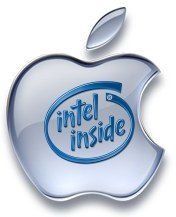Intel chips could power future iPad versions, says research analyst


About six months ago, fellow ZDNet writer Adrian Kingsley-Hughes penned a piece about Intel's desire to provide Apple with iPad processors in the future. Since then, there's been no sign that future is close to being upon us, but a research analyst has recently laid out a scenario where it could become reality.
RBC Capital Markets analyst Doug Freedman believes that Apple and Intel could indulge in a little quid pro quo when it comes to mobile processor production in the future. He argues that if Apple could get Intel to manufacture the ARM-based chips it designs for future iterations of the iPhone, then Apple could agree to have Intel's own x86-based processors be a part of later iPad tablets.
That scenario -- one that neither side would ever confirm until the deal was struck -- is less far-fetched than it may have once seemed, as Apple is seeing its marriage to Samsung unravel thanks to various patent and IP-related lawsuits. After years of relying on Samsung to produce its iPhone and iPad chips, Apple would clearly like to find another processor partner.
Intel and Apple have had an on-again, off-again relationship over the years, though today's Macs use Intel processors and the two companies worked on the technology behind the Thunderbolt interface together. According to our sister site CNET, the two firms have purportedly discussed a foundry relationship like the one Freedman envisions over the last couple of years, though, again, nothing official has ever been announced.
Intel has already dabbled in ARM-chip production, having inked a deal with Netronome to make its custom chips back in April. Stranger things have happened, so don't be shocked if the iPad 6 has Intel inside, owing to ARM-processor fabrication by Intel itself.